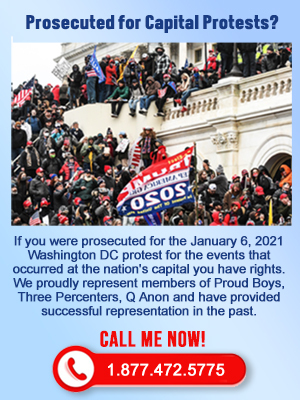In the intricate tapestry of the legal system, federal crimes stand out as significant breaches of law that warrant attention not just nationally but often internationally. These offenses, prosecuted by federal agencies and subject to federal laws, encompass a wide array of activities, from white-collar fraud to terrorism. Examining notable examples sheds light on the gravity and complexity of federal crimes and underscores their impact on society.
**1. Enron: The Poster Child of Corporate Fraud**
The Enron scandal of the early 2000s serves as a stark reminder of the devastating consequences of corporate greed and financial misconduct. Enron Corporation, once lauded as a paragon of innovation and success, imploded in 2001 amidst revelations of widespread accounting fraud and corruption. Executives manipulated financial statements to inflate profits, concealing billions of dollars in debt.
This egregious deception led to one of the most extensive investigations in U.S. history, involving multiple federal agencies. The fallout was immense, with thousands of employees losing their jobs and investors suffering massive financial losses. Enron executives faced charges including securities fraud, wire fraud, and conspiracy, resulting in lengthy prison sentences for several high-ranking individuals.
**2. Bernie Madoff’s Ponzi Scheme: A Financial House of Cards**
Bernard Madoff’s name became synonymous with deception on a monumental scale when his elaborate Ponzi scheme unraveled in 2008. For decades, Madoff operated a fraudulent investment firm that promised consistently high returns to investors. In reality, he was using new investors’ money to pay returns to existing clients, with no legitimate profits generated.
Madoff’s scheme collapsed amidst the financial crisis, revealing losses of billions of dollars and devastating the lives of countless investors, including charities and individuals. Federal authorities swiftly moved to prosecute Madoff, charging him with securities fraud, investment advisor fraud, and money laundering. In 2009, he was sentenced to 150 years in prison, a sentence befitting the magnitude of his crimes.
**3. The Unabomber: A Reign of Terror**
Ted Kaczynski, infamously known as the Unabomber, carried out a campaign of domestic terrorism over nearly two decades, sending mail bombs that killed three people and injured dozens more. His meticulously planned attacks targeted individuals associated with technology and modern society, driven by a radical anti-technology ideology.
The FBI, in one of the most extensive investigations in its history, dubbed the case “UNABOM” (University and Airline Bomber) due to his initial targets. Kaczynski’s manifesto, published in major newspapers, ultimately led to his capture when his brother recognized his writing style and alerted authorities.
In 1996, Kaczynski was arrested and charged with multiple federal offenses, including bombings that resulted in deaths. He later pleaded guilty to avoid the death penalty and received multiple life sentences without the possibility of parole. The Unabomber case stands as a chilling reminder of the destructive potential of extremism and radical ideologies.
**4. Watergate: The Scandal that Shook a Nation**
The Watergate scandal remains a watershed moment in American political history, revealing the extent of corruption and abuse of power at the highest levels of government. In 1972, operatives linked to President Richard Nixon’s reelection campaign broke into the Democratic National Committee headquarters at the Watergate complex, aiming to gather intelligence and sabotage opponents.
As the scandal unraveled, it became clear that Nixon and his administration were complicit in orchestrating the break-in and subsequent cover-up. The revelations, brought to light through investigative journalism and congressional hearings, rocked the nation and eroded public trust in government institutions.
Nixon’s involvement in the cover-up led to calls for his impeachment, ultimately resulting in his resignation in 1974 to avoid almost certain removal from office. Numerous individuals involved in the scandal, including high-ranking government officials, faced federal charges ranging from obstruction of justice to perjury.
**5. 9/11 Attacks: Terrorism on American Soil**
The September 11, 2001, terrorist attacks represent one of the most devastating instances of mass violence and loss of life in U.S. history. Coordinated by the extremist group al-Qaeda, hijackers seized control of four commercial airliners, crashing two into the World Trade Center towers in New York City and one into the Pentagon in Arlington, Virginia. The fourth plane, United Airlines Flight 93, crashed into a field in Pennsylvania after passengers attempted to regain control from the hijackers.
The attacks claimed the lives of nearly 3,000 people and inflicted profound emotional and psychological scars on the nation. In response, the U.S. government launched a global war on terror, targeting al-Qaeda and its supporters.
Federal prosecutors pursued charges against individuals involved in planning and executing the attacks, as well as those who aided and abetted the terrorists. Efforts to bring perpetrators to justice included military tribunals, international cooperation, and the establishment of specialized federal courts.
In conclusion, examples of federal crimes span a broad spectrum, from financial fraud and terrorism to political corruption and domestic terrorism. These cases underscore the critical role of federal law enforcement agencies and the justice system in investigating, prosecuting, and deterring criminal behavior that threatens the safety, security, and integrity of the United States and its citizens.
References:
- Helyar, J. (2003). “Barbarians at the Gate: The Fall of RJR Nabisco”. HarperBusiness.
- Arvedlund, E. (2009). “Too Good to Be True: The Rise and Fall of Bernie Madoff”. Penguin Books.
- The United States Department of Justice. (n.d.). “Timothy J. McVeigh”. Retrieved from https://www.justice.gov/archives/ag/timothy-j-mcveigh
- Stewart, M., & Cohen, M. (2005). “Martha, Inc.: The Incredible Story of Martha Stewart Living Omnimedia”. John Wiley & Sons.
- Greenwald, G. (2014). “No Place to Hide: Edward Snowden, the NSA, and the U.S. Surveillance State”. Metropolitan Books.
